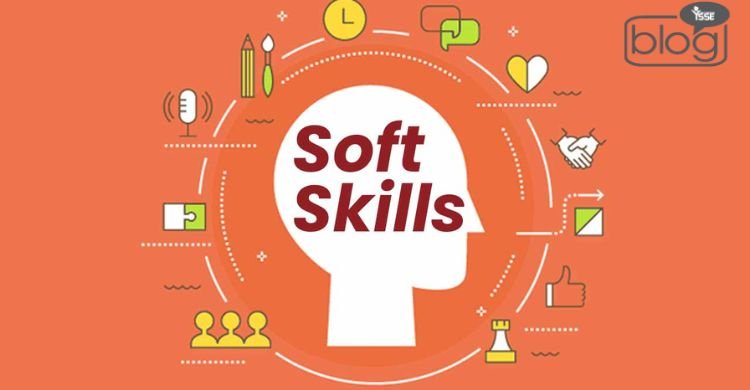Soft skills refer to the personal attributes and interpersonal qualities that enable individuals to effectively communicate, collaborate, and adapt in various professional settings. These skills, although intangible, play a crucial role in career advancement, often complementing and strengthening an individual’s technical expertise. Bangladesh, with its rapidly growing economy and thriving job market, has witnessed an increased emphasis on soft skills in recent years. This blog aims to shed light on the importance of mastering soft skills for career advancement in Bangladesh. By providing insights, tips, and resources, it seeks to empower professionals to develop and apply these skills in their professional journeys.
The Essential Soft Skills for Career Advancement
Communication Skills: Effective communication is a cornerstone of success in any professional environment. Professionals who can clearly articulate their ideas, actively listen, and adapt their communication style to different audiences are more likely to excel in their careers. To improve verbal and written communication skills, individuals can:
- Attend communication workshops or seminars.
- Practice active listening and seeking feedback.
- Enhance vocabulary through reading and expanding linguistic repertoire.
Teamwork and Collaboration: In a team-oriented culture like Bangladesh’s, collaboration is essential for driving innovation, problem-solving, and achieving organizational goals. Professionals who can effectively collaborate with colleagues, contribute to group dynamics, and share responsibilities are highly valued. Some examples of how teamwork contributes to career advancement include:
- Fostering strong professional relationships.
- Showcasing the ability to work harmoniously in diverse teams.
- Demonstrating leadership in collaborative projects.
Adaptability and Flexibility: The job market in Bangladesh, characterized by rapid advancements in technology and evolving industries, demands professionals who can adapt and flexibly navigate change. Developing adaptability and flexibility skillsets involves:
- Embracing new technologies and learning to work with them effectively.
- Seeking opportunities to step out of comfort zones and take on new challenges.
- Demonstrating resilience and maintaining a growth mindset in the face of uncertainty.
Emotional Intelligence: Emotional intelligence, the ability to understand and manage emotions, plays a crucial role in professional success. Professionals who possess high emotional intelligence are more effective in managing conflicts, building relationships, and influencing others. Strategies for enhancing emotional intelligence include:
- Practicing self-awareness and reflection.
- Developing empathy towards colleagues and clients.
- Cultivating emotional regulation techniques to mitigate stress and frustrations.
Soft Skills in the Bangladeshi Professional Context
Cultural Sensitivity: In a diverse country like Bangladesh, understanding and respecting cultural nuances is of utmost importance. Professionals who demonstrate cultural sensitivity are better equipped to navigate cross-cultural interactions and establish meaningful connections. Cultural sensitivity contributes to effective communication and collaboration by:
- Avoiding misunderstandings and miscommunication.
- Fostering a respectful and inclusive work environment.
- Facilitating smoother negotiations and collaborations with international partners.
Customer Service Skills: Regardless of the industry, customer-centric approaches are vital for success in Bangladesh. Professionals who prioritize exceptional customer service skills are more likely to enhance customer satisfaction, loyalty, and overall business growth. A few examples of how good customer service skills can impact career growth include:
- Generating positive word-of-mouth referrals.
- Enhancing the reputation of the individual and the organization.
- Opening doors to new opportunities and professional growth.
Leadership and Management Skills: Strong leadership and management skills significantly contribute to career advancement in Bangladesh. Professionals who can effectively lead teams, manage projects, and make strategic decisions are highly sought-after. Relevant leadership and management skills include:
- Delegation and empowerment.
- Conflict resolution and negotiation.
- Strategic planning and decision-making.
Networking and Relationship Building: The value of professional networks cannot be understated when it comes to career development in Bangladesh. Professionals who actively build and nurture relationships can tap into a multitude of opportunities, receive mentorship, and acquire industry insights. Tips for effective networking in the Bangladeshi business environment include:
- Attending industry events and conferences.
- Leveraging social media platforms for professional connections.
- Engaging in mentorship programs and seeking guidance from experienced professionals..
Mastering soft skills is crucial for career advancement in Bangladesh’s competitive professional landscape. Professionals who develop exceptional communication, teamwork, adaptability, emotional intelligence, cultural sensitivity, customer service, leadership, management, and networking skills are better positioned to navigate challenges and seize opportunities. By proactively investing in soft skills development, individuals can unlock their full potential and achieve success in their careers.
To read more blogs like this, click here
Writer
K.M. Asif Rahmotullah
Intern
Content Writing department, YSSE

